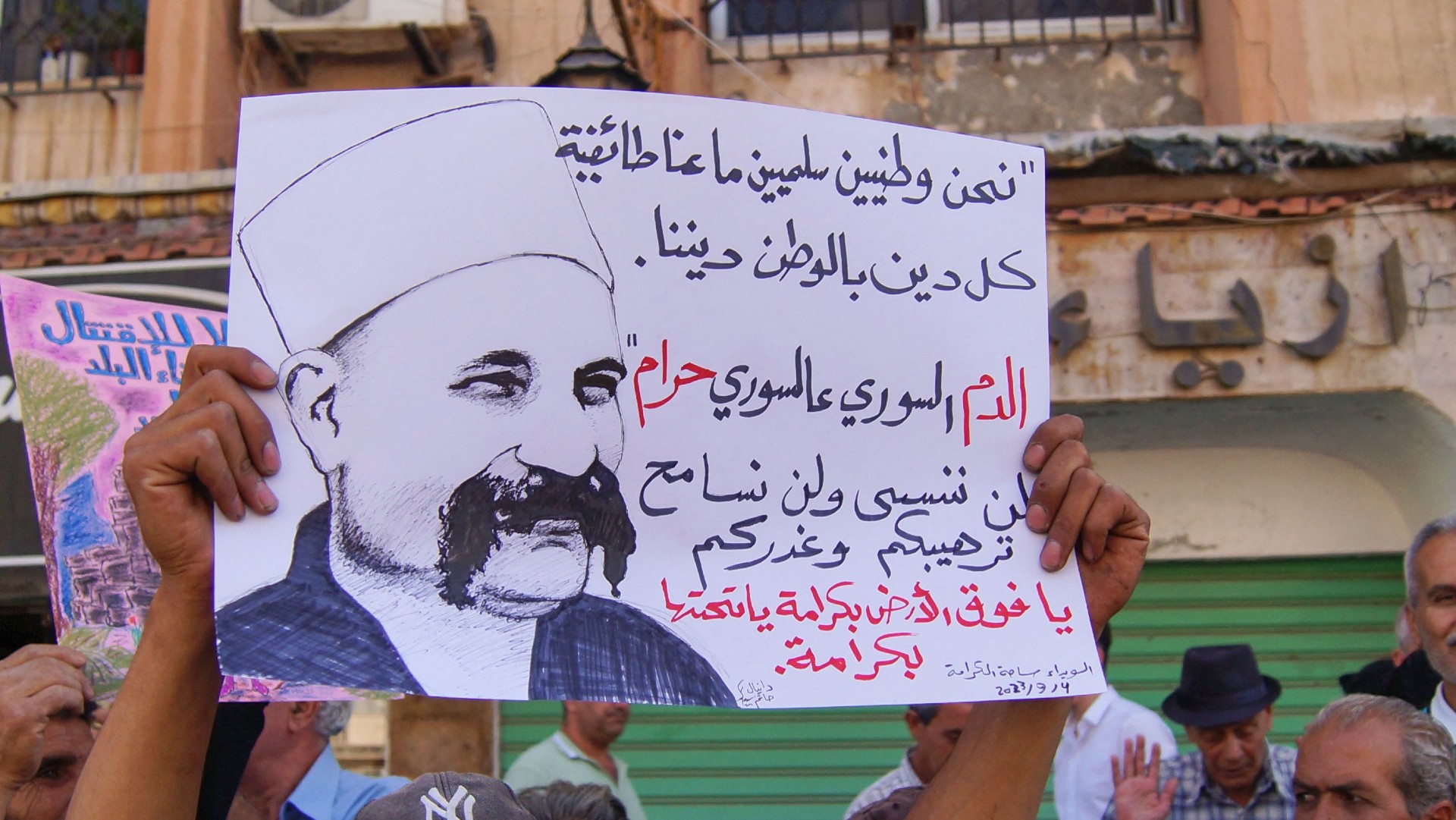Protests in Syria: could they bring down the Assad regime?
Threat to power grows amid poverty, inflation and ‘botched’ response to earthquake

A free daily email with the biggest news stories of the day – and the best features from TheWeek.com
You are now subscribed
Your newsletter sign-up was successful
Twelve years after the Arab Spring uprising in Syria morphed into bloody civil war, a new wave of protests against President Bashar al-Assad’s brutal regime is gathering momentum, said Raja Abdulrahim in The New York Times.
The unrest began in August in the southern province of Sweida, home to Syria’s Druze sect: it was triggered by the government slashing subsidies for fuel, at a stroke doubling its price.
Protesters tore down “the ubiquitous posters” of Assad and attacked the shuttered offices of his ruling Ba’ath Party. Since then, however, the protests have spread to Damascus, Aleppo and even to the coastal provinces of Tartus and Latakia, strongholds of Assad’s own Alawi sect. Now, many are asking whether all this could pose a threat to Assad’s grip on power.
The Week
Escape your echo chamber. Get the facts behind the news, plus analysis from multiple perspectives.

Sign up for The Week's Free Newsletters
From our morning news briefing to a weekly Good News Newsletter, get the best of The Week delivered directly to your inbox.
From our morning news briefing to a weekly Good News Newsletter, get the best of The Week delivered directly to your inbox.
Buckled economy making life unbearable
It certainly could, said Saba Madwar in Al Modon (Beirut). Unlike past protest movements, this one “transcends sectarian boundaries”: groups that largely stayed neutral in the civil war – Christians, tribal Muslims and above all, the Druze – are all clamouring for regime change. Aside from refusing to send their young men on mandatory military service in Assad’s army, the Druze leaders have hitherto tried to keep things calm with Damascus. Now they’re openly criticising the regime.
With good reason, said Robin Yassin-Kassab on his blog Qunfuz. The economy has buckled: soaring unemployment and hyperinflation are making life unbearable: 90% of Syrians now live below the poverty line. And they’re well aware that this is the fault not of Western sanctions, but of the “looting of the country” by Assad, Russia and Iran.
The botched response to the devastating earthquake that struck Syria and Turkey in February has also served to fuel popular anger, said Marwan Kabalan in Al-Araby Al-Jadeed (London). The regime now has little choice but to pay heed to the demands for change.
Protests won’t trigger revolution
Let’s be realistic, said Radwan Ziadeh on Syria.tv (Istanbul). Yes, these protests may intensify; but they won’t trigger a revolution. Assad has “systematically eliminated” political rivals and can crush dissent with his security forces.
A free daily email with the biggest news stories of the day – and the best features from TheWeek.com
But his problem is that he’s always claimed that Syria’s minorities are loyal to the regime, said Amberin Zaman on Al-Monitor (Washington). If he unleashes his forces on the Druze and other minorities, that key narrative of his regime will crumble.
The irony is that he’s losing the loyalty of previously acquiescent minorities at the very time he’s winning back friends abroad. In May, Syria was even welcomed back into the Arab League after a 12-year absence. If he now resorts to violent repression of (mainly) Muslim minorities, he’s likely to find himself out in the cold once more.